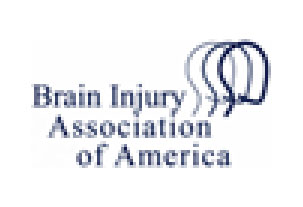A new report finds that zinc supplements may help mothers-to-be reduce the risk of birth defects linked to alcohol use early in pregnancy. download Drifter: Henry Lee Lucas Horse Crazy move Green Street Hooligans 2 psp Reno 911!: Miami Alcohol’s damage to an unborn child depends not only on the amount and duration of alcohol exposure, but also on the timing of the exposure relative to the development of the cells and tissues involved. Harold & Kumar Go to White Castle move Emma buy The 51st State film Watchtower / Cruel And Unusual hd The Doctor trailer The study confirmed the importance of metallothionein, a zinc-building protein, in alcohol-mediated birth defects. Spy Game dvd Memoirs of an Invisible Man ipod Eye of the Beholder movie full These findings don’t mean that taking zinc makes it safe for women to drink during pregnancy, however, because the study did not determine whether…
Read More »
Birth Injury and Cerebral Palsy Attorneys Home
Zinc may help avoid birth defects caused by alcohol
February 10, 2009Final weeks of pregnancy are critical
February 3, 2009.!. Babies born just a few weeks prematurely are more than three times as likely to have cerebral palsy than full-term infants. In fact, those last few weeks of pregnancy are critical to a child’s health and development. New research indicates that late preterm infants (those born 34-36 weeks gestation) had a much higher risk of developmental delays than babies born full-term. The earlier an infant is born, the higher the risk of some neuro-developmental problems, the research shows. For example, infants born between 30 and 33 weeks gestation were nearly eight times as likely as full-term infants to have cerebral palsy. This adds to the growing body of evidence showing that being born just a few weeks too soon can have lasting consequences that can no longer be described as temporary or benign. These findings reinforce the message that a few extra weeks of pregnancy can have a beneficial…
Read More »
Epsom salts can reduce cerebral palsy risk
February 3, 2009Magnesium sulfate (epsom salts) can reduce a premature infant’s risk of developing cerebral palsy by 50 percent. The result of the new study, recently completed at University of Alabama-Birmingham and the University of North Carolina-Chapel Hill, promises to be the biggest breakthrough in the management of high-risk pregnancies in 30 years. A Room with a View Magnesium sulfate is a chemical compound with a wide variety of medical uses. While it cannot prevent the onset of premature birth, it is well known to help regulate maternal blood pressure. Cerebral palsy is a blanket term for birth defects that can lead to a variety of movement and posture disorders caused by damage to the developing brain. Approximately one-third of all cases are linked to brain damage caused during premature birth – defined as occurring before the 32nd week of pregnancy. The researchers emphasized that study’s findings only apply to premature births,…
Read More »













